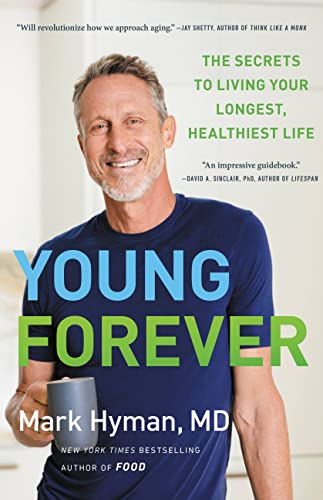Many of us tend to put self-care last on our list of to-dos (I certainly have for much of my life, to the detriment of my own health). Work, family, friends, and the needs of others often come first. Nourishing our spirit and mental health is usually an afterthought or not a thought at all. In places like the Blue Zones, the power of rest and community is central to life. But our fast-paced society—full calendars, many extracurricular activities, building careers, raising families, and taking work home—has made self-care and mental health low priorities. The truth is you cannot live a healthy, happy, fulfilled, and long life while neglecting to nourish your mind and spirit.
It might be hard to imagine, but your thoughts, feelings, beliefs, grief, joy, sadness, love, and anger are all transmuted into biological signals that change your gene expression, impacting your immune function, hormones, microbiome, neurotransmitters, neuroplasticity, mitochondria, and more. Getting your mind and mindset right has profound health benefits. Study after study has shown, for example, how repressed anger can predict who gets breast cancer and other cancers. If your emotions are inflamed, so is your biology. Caroline Myss, an author and medical intuitive, says that your “biography becomes your biology.” Neuroscientist Candace Pert wrote about the “molecules of emotion,” based on her groundbreaking research at the National Institutes of Health, and established the field of psychoneuroimmunology.
Everyone must find their own way to heal their mind, heart, and spirit. Nourishing your spirit includes cultivating a positive mindset (optimists live longer even if they are wrong!), developing self-love and self-worth, prioritizing self-care, cultivating community and meaningful relationships, practicing healthy stress-management techniques, finding support, and practicing religion or spirituality if that speaks to you.
Nourishing your spirit is especially tough for the natural givers, or “care-a-lots”—those who dedicate their lives to helping others. The best and only sustainable way to help others is to prioritize your own spirit. By making sure your cup is filled, you’ll be able to fill others’ cups, ten times over.
There is a mountain of empirical evidence to show that self-care, mindset, and community help improve all factors of health and longevity. Practicing self-compassion can significantly help people improve their health behaviors, like quitting smoking, exercising, eating healthier or overcoming eating disorders, practicing self-care, and improving overall well-being. Self-compassion is also associated with improving physical symptoms, mental health outcomes, glycemic control in patients with diabetes, and resiliency against certain cancers as well as improved mental health in those with cancer.
Social connections, community, and strong relationships have been associated with increased life span, improved mental health, and improved physical markers such as blood pressure, waist circumference, body mass index, and inflammation.
Mindset, another feature of spiritual health, is also scientifically important. Research shows that people who ruminate over negative thoughts tend to have decreased life spans and poorer physical and mental health. Those who focus on positive thoughts and future goals and rewards have better well-being and physical health.
Having a sense of purpose is associated with overall well-being, improved physical and cognitive health, reduced depressive symptoms, and slower aging. In fact, psychological well-being is even associated with increased telomere length and slower telomere attrition, whereas chronic stress is associated with decreased telomere length, accelerated cellular aging, and increased oxidative stress.
So, taking care of yourself, practicing self-love and self-compassion, working on a growth mindset, building relationships and community, and having a sense of purpose are crucial to living a fulfilling, long, healthy life. Prioritizing self-care and making time for reflection, relaxation, and mindfulness can support healthy hormone levels. Studies have shown that interventions like meditation and mindfulness can significantly lower cortisol levels. So, make sure you’re taking time for you.
For basic stress management, here are some simple ways to prioritize self-care and reset your stress response:
- Try simple breathing practices such as Take 5: five deep breaths slowly in and out when you wake, before each meal, and at bedtime.
- Try guided meditations or yoga nidra (yogic sleep) practices daily even for 10 minutes. If you don’t have 10 minutes a day, then it’s worth taking a hard look at your life!
- Start or continue a regular yoga practice. Even 15 minutes a day of breathing and stretching can reset our nervous system.
- Try forest bathing, or what we used to call taking a walk in the woods!
- Write your deepest feelings and thoughts in a journal daily—it has been proven to lower inflammation and improve overall well-being and health.
- Build your close friend network. Start an in-person or Zoom support group to create your own safe healing environment and to share your life with all its ups and downs. Being known and seen and loved is the best medicine.
- Start an exercise and strength-training routine; not only does exercise release your feel-good neurotransmitters serotonin and dopamine, but resistance training has been shown to help mitigate age-related testosterone decline. It’s a form of both self-care and hormone support!



